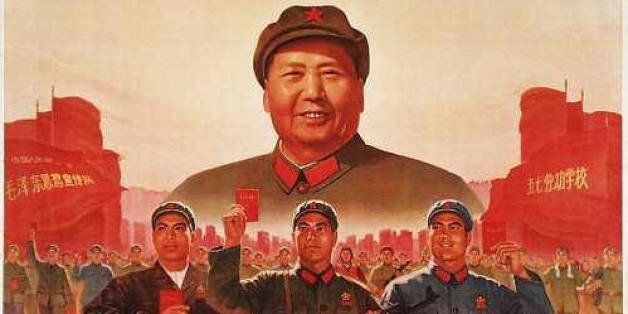Nathan Gardels is the editor-in-chief of Noema Magazine. He is also the co-founder of and a senior adviser to the Berggruen Institute.
A furious war of words was unleashed at the Shangri-La Dialogue security conference in Singapore last weekend. The U.S. and Japan accused China of trying to change the status quo by coercion and intimidation; the Chinese accused Japan and the U.S. of inciting instability with its “20th century mentality” of war and conflict.
Following up on his comments in Singapore, Japanese Prime Minister Shinzo Abe writes in The WorldPost that China ought to abide by the rule of law in the seas of Asia and calls for negotiations. Recalling the experience of World War II, Shanghai scholar/entrepreneur Eric X. Li mocks Abe’s pledge in Singapore that the “new Japanese” will help their neighbors resist Beijing. The great danger now, writes the Australian scholar Hugh White, is that the ground is being laid for a catastrophic clash since both sides in this conflict assume incorrectly that the other will back down. South Korea’s Foreign Minister Yun Byung-se fears a “Pandora’s box” is being opened in Asia. Marking the 25 years since the Tiananmen massacre, China scholar Perry Link worries that Xi Jinping is becoming “a Mao-like strongman.”
The Indian Congress Party’s enfant terrible, Shashi Tharoor, ignited a political firestorm in New Delhi with his WorldPost blog suggesting that his long-time adversary, the new Prime Minister Narendra Modi, was morphing into a modernizer who could move the country forward.
Reacting to the continuing horror stories of rape in rural India and elsewhere, the Pakistani activist and writer Bina Shah says that “there is an undeclared war against half the population of South Asia” who face insecurity in their daily lives. Former British Prime Minister Gordon Brown updates WorldPost readers on the schoolgirls kidnapped by Boko Haram, now in captivity for more than 50 days.
Human rights activist Bianca Jagger documents how Brazil’s hosting of the World Cup has exposed manifold injustices in that giant emerging economy.
Filmmaker Astra Taylor writes of her concern that the Internet has been turned “from a tool of liberation into a tool of oppression” by the NSA and that digital corporate giants such as Google cooperate with it. Just returning from Beijing, Patrick Mendis explains how commercial spying and national security are intertwined with China’s state-owned enterprises just as there is a link between the U.S. security community and private American information companies.
Andrew Leigh, an Australian parliamentarian, describes how his country’s buy-back program has cut the death toll from gun violence. Finally, in an interview, Economist editors John Micklethwait and Adrian Wooldridge discuss their new book, “The Fourth Revolution: The Global Race to Reinvent the State.”
WHO WE ARE
EDITORS: Nathan Gardels, Senior Advisor to the Berggruen Institute on Governance and the long-time editor of NPQ and the Global Viewpoint Network of the Los Angeles Times Syndicate/Tribune Media, is the Editor-in-Chief of The WorldPost. Farah Mohamed is the Managing Editor of The WorldPost. Kathleen Miles is the Senior Editor of the WorldPost. Alex Gardels is the Associate Editor of The WorldPost. Nicholas Sabloff is the Executive International Editor at the Huffington Post, overseeing The WorldPost and HuffPost’s 10 international editions. Cosima Ungaro is Deputy International Editor at the Huffington Post and Eline Gordts is HuffPost’s World Editor.
CORRESPONDENTS: Max Rosenthal in Beirut; Sophia Jones in Cairo; Matt Sheehan in Beijing.
EDITORIAL BOARD: Nicolas Berggruen, Nathan Gardels, Arianna Huffington, Eric Schmidt (Google Inc.), Pierre Omidyar (First Look Media) Juan Luis Cebrian (El Pais/PRISA), Walter Isaacson (Aspen Institute/TIME-CNN), John Elkann (Corriere della Sera, La Stampa), Wadah Khanfar (Al Jazeera), Dileep Padgaonkar (Times of India) and Yoichi Funabashi (Asahi Shimbun).
CONTRIBUTING EDITORS: Moises Naim (former editor of Foreign Policy) and Nayan Chanda (Yale/Global; Far Eastern Economic Review). Katherine Keating (One-On-One) and Jehangir Pocha (NewsX India) .
The Asia Society and its ChinaFile, edited by Orville Schell, is our primary partner on Asia coverage. Eric X. Li and the Chunqiu Institute/Fudan University in Shanghai and Guancha.cn also provide first person voices from China. We also draw on the content of China Digital Times. Seung-yoon Lee is The WorldPost link in South Korea.
Jared Cohen of Google Ideas provides regular commentary from young thinkers, leaders and activists around the globe. Bruce Mau provides regular columns from MassiveChangeNetwork.com on the “whole mind” way of thinking. Patrick Soon-Shiong is Contributing Editor for Health and Medicine.
ADVISORY COUNCIL: Members of the Berggruen Institute’s 21st Century Council and Council for the Future of Europe serve as the Advisory Council — as well as regular contributors — to the site. These include, Jacques Attali, Shaukat Aziz, Gordon Brown, Fernando Henrique Cardoso, Juan Luis Cebrian, Jack Dorsey, Mohamed El-Erian, Francis Fukuyama, Felipe Gonzalez, John Gray, Reid Hoffman, Fred Hu, Mo Ibrahim, Alexei Kudrin, Pascal Lamy, Kishore Mahbubani, Alain Minc, Dambisa Moyo, Laura Tyson, Elon Musk, Pierre Omidyar, Raghuram Rajan, Nouriel Roubini, Nicolas Sarkozy, Eric Schmidt, Gerhard Schroeder, Peter Schwartz, Amartya Sen, Jeff Skoll, Michael Spence, Joe Stiglitz, Larry Summers, Wu Jianmin, George Yeo, Fareed Zakaria, Ernesto Zedillo, Ahmed Zewail, and Zheng Bijian.
From the Europe group, these include: Marek Belka, Tony Blair, Jacques Delors, Niall Ferguson, Anthony Giddens, Otmar Issing, Mario Monti, Robert Mundell, Peter Sutherland and Guy Verhofstadt.
MISSION STATEMENT
The WorldPost is a global media bridge that seeks to connect the world and connect the dots. Gathering together top editors and first person contributors from all corners of the planet, we aspire to be the one publication where the whole world meets.
We not only deliver breaking news from the best sources with original reportage on the ground and user-generated content; we bring the best minds and most authoritative as well as fresh and new voices together to make sense of events from a global perspective looking around, not a national perspective looking out.





